The popular Ubisoft AC series had to take a breath to reinvent the formula after Unit and Syndicate. Hence, they brought us the Origins back in 2017, which turned what until now had been open-world action adventures into a gigantic RPG, something that we saw even more marked in the celebrated Assassin’s Creed Odyssey (2018). Now, to close the trilogy of Assassin’s Creed both in the past and the new generation comes the Assassin’s Creed Valhalla, which repeats what was seen in the previous two with subtle changes and novelties to offer once again an immense game, which once again gives more importance to quantity than to the quality of its content, something with which it seems that players they are quite happy.
If something works, why change it, right? And if you liked Odyssey, this would also convince you since it even polishes some of its issues and is a more focused adventure, better structured and with less straw, at least in an apparent way. It is also the third that repeats this formula. After hundreds of hours of the same, the proposal may start to tire you, or simply that its setting is not as attractive as the ancient Egyptian and Greek civilizations, which now give way to the Vikings.
Valhalla
In terms of setting, Assassin’s Creed Valhalla takes a great leap forward, going from ancient civilizations to the most recent 9th century after Christ, in a Great Britain plunged into chaos and invaded by Vikings, among other peoples. We will put ourselves in the shoes of Eivor -man or woman, as we prefer-, a Viking who leads his clan in one of these invasions and who will create a new home for his people in the lands of England. We will use brute force in many battles and, above all, diplomacy, forging alliances with different sides, so we will have to overthrow and put kings. Plotting all kinds of political affairs in a pure and simple game of thrones. There are also certain attempts to connect this installment with the rest of the series and bring back the old conflict of the Assassins and the Templars, something that seems to be done in a somewhat forced way that will surely please the fans more.
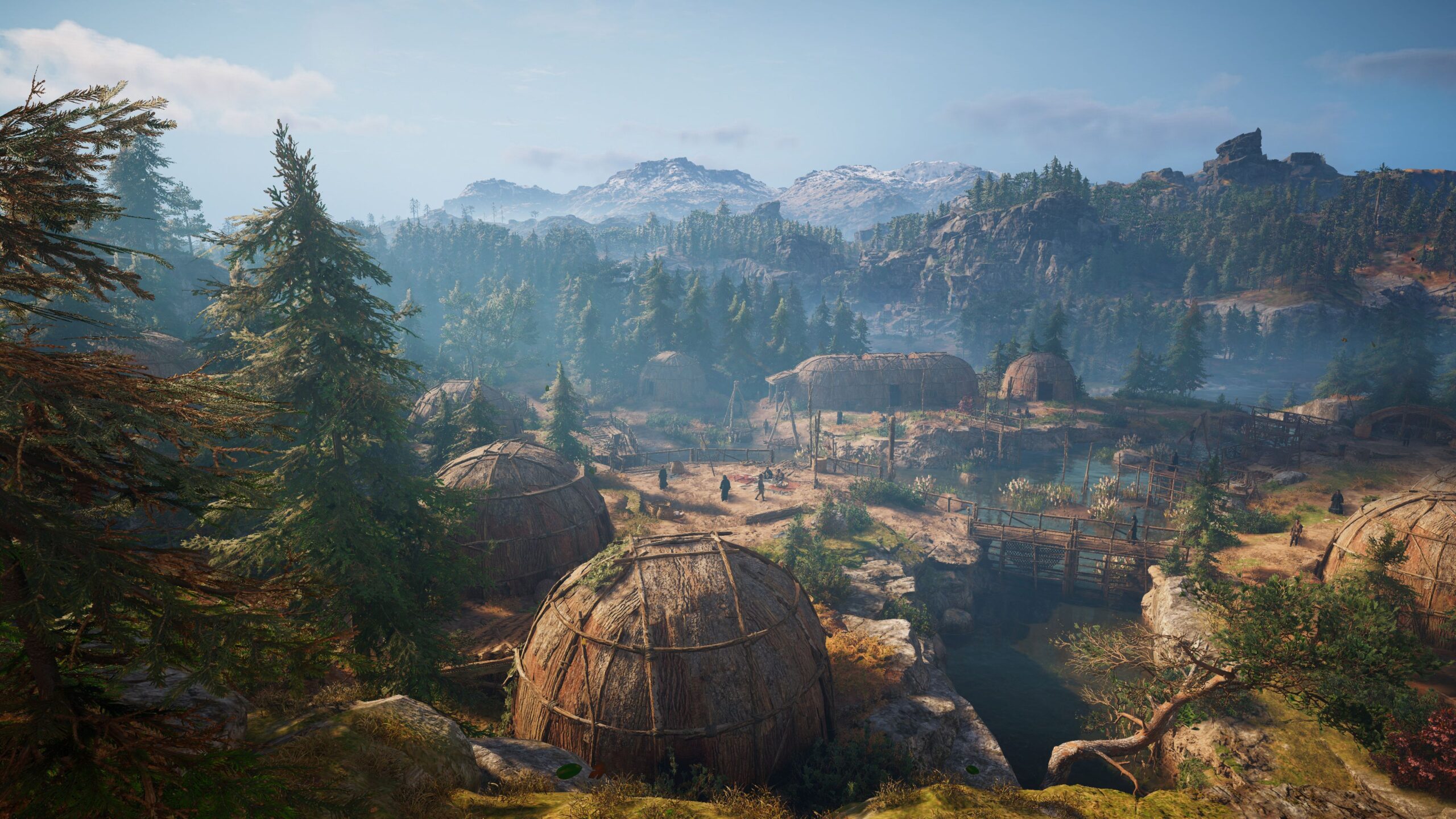 Thus, with a map divided into different regions, we find several campaigns or plot arcs with their different characters and plots, almost as if they were seasons of a series, which close when we have achieved that alliance, settling little by little in England while we make our settlement prosper. This structure helps make it a more orderly and focused game than Odyssey. Being very clear at all times what our objectives are, what we are doing and what we are doing it for. But this also takes a certain price, as a rather blurred protagonist and in many moments in the background, who does not have a good development, and with some of these plot arcs with more interest than others, and that can be done sometimes a little heavy with so much politicking, especially when you have been there for many hours, and this structure begins to repeat itself.
Thus, with a map divided into different regions, we find several campaigns or plot arcs with their different characters and plots, almost as if they were seasons of a series, which close when we have achieved that alliance, settling little by little in England while we make our settlement prosper. This structure helps make it a more orderly and focused game than Odyssey. Being very clear at all times what our objectives are, what we are doing and what we are doing it for. But this also takes a certain price, as a rather blurred protagonist and in many moments in the background, who does not have a good development, and with some of these plot arcs with more interest than others, and that can be done sometimes a little heavy with so much politicking, especially when you have been there for many hours, and this structure begins to repeat itself.
Beyond this, there is also a good place for Norse mythology so fashionable lately in video games, in a way that we are not going to reveal to you because it is quite surprising. In general terms, the setting of this installment -as always- Has seemed a success. It is an exciting historical period and one that they have exploited in all its aspects. However, it is obviously not as attractive as the two previous installments. However, it is more reminiscent of the series first games, with castles and kings, already only three centuries away from the original delivery.
 It is a pity that we already have to take for granted, as something irremediable, that the story is not a wonder and that it cannot have characters or memorable moments, as if it were some incompatibility or impossibility of the series itself and for any Ubisoft title for that matter. At the moment, it seems that Ubisoft may be releasing games for the next few decades that we are not going to find a worthwhile story. And that it is especially serious in an RPG that gives so much weight to the narrative.
It is a pity that we already have to take for granted, as something irremediable, that the story is not a wonder and that it cannot have characters or memorable moments, as if it were some incompatibility or impossibility of the series itself and for any Ubisoft title for that matter. At the moment, it seems that Ubisoft may be releasing games for the next few decades that we are not going to find a worthwhile story. And that it is especially serious in an RPG that gives so much weight to the narrative.
Being a Viking
The playable formula in Valhalla is the same as the two previous Assassin’s Creed, and once again opts for a combat system and quite silly enemies and with too much foreseeable attack patterns, it is rare that they put you in trouble, but they are happy to dispatch with the fierceness of our Viking, who tears off arms and heads with very spectacular movements. As a novelty compared to Odyssey, the shields return, something that seems not to but changes the rhythm of the fighting a bit, the fact of being able to equip the weapon that we want in each arm, or two-handed weapons, creating different types of combinations, the possibility of aiming with the bow and taking down weak rivals, which if we hit it, we leave them stunned. Valhalla has the most polished combat system of the last three installments, although it still does not seem like an innovation.
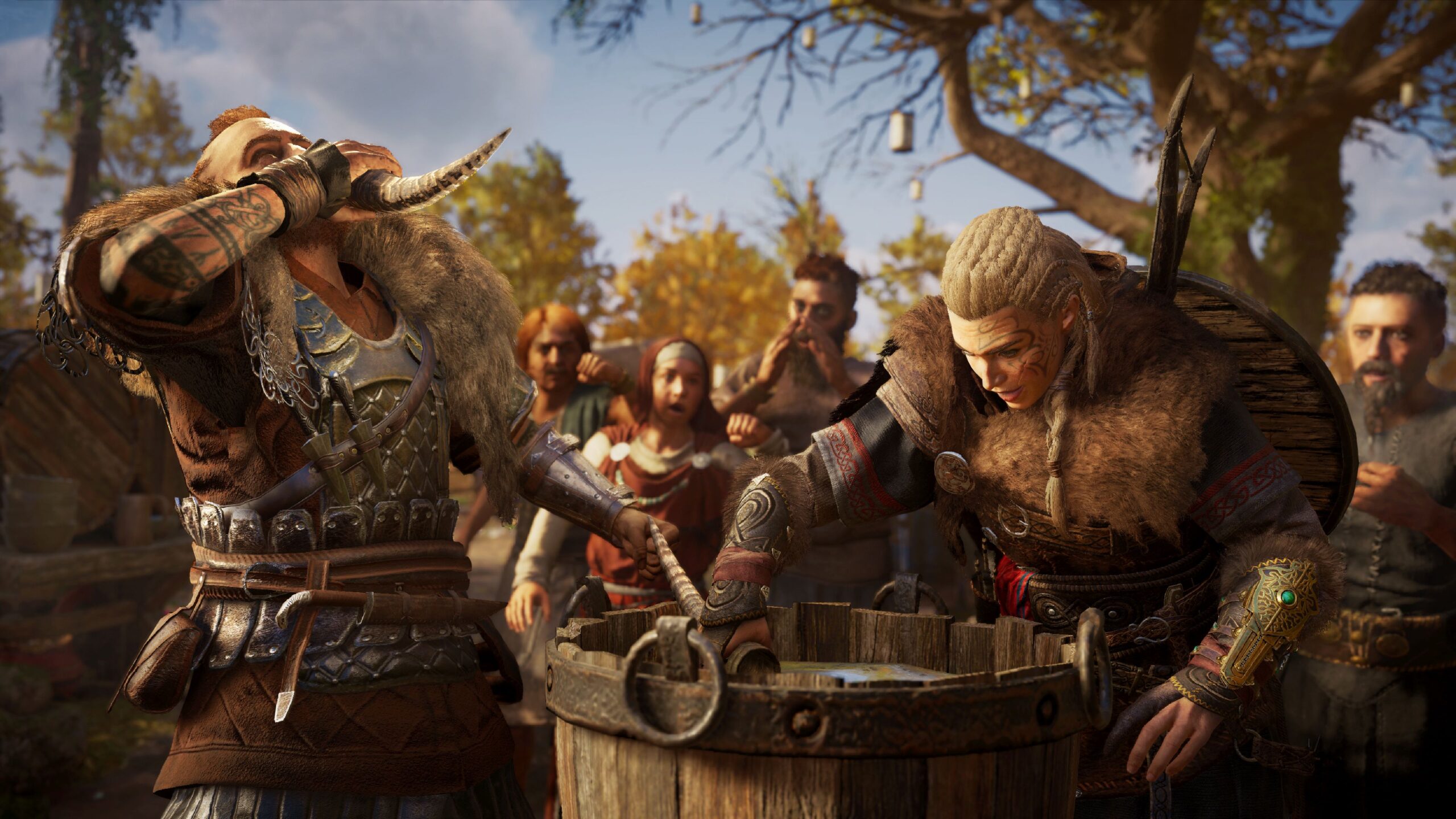 To improve and grow the settlement, we need resources. We will have to loot, raid monasteries or small coastal camps with our army of Vikings, which start in a very epic way, with our protagonist blowing the horn and his battle companions screaming towards the coast. Simultaneously, people flee in terror and we see dozens of characters interact clumsily, both allies and enemies. If it is already a game with problems in battles with few enemies, imagine when they become massive, with artificial intelligence that leaves much to be desired, in any of the situations, and the slowest moments of stealth.
To improve and grow the settlement, we need resources. We will have to loot, raid monasteries or small coastal camps with our army of Vikings, which start in a very epic way, with our protagonist blowing the horn and his battle companions screaming towards the coast. Simultaneously, people flee in terror and we see dozens of characters interact clumsily, both allies and enemies. If it is already a game with problems in battles with few enemies, imagine when they become massive, with artificial intelligence that leaves much to be desired, in any of the situations, and the slowest moments of stealth.
The stealth was trying will give a little more playable relevance in the two previous deliveries, recovering mechanical early in the series, as put on the layer to reduce the detection range of the enemy trying to mix with pedestrians or create distractions. We have played less than ever with these ingredients with stealth since the design of missions rarely invites it. You rarely see the advantage, more than wasting a few minutes on something that you could solve in a few seconds with a clean hack. Valhalla wants to be everything, that huge action RPG of the last two installments, and go back a little to the playable origins. The truth is that it does not work. These infiltration touches end up being an anecdote, like so many aspects in an adventure that wants to offer many, many things but take almost none too seriously (minigames of dice, fishing, drinking, hunting of rare animals returns, anomalies of the Animus in the form of puzzles.
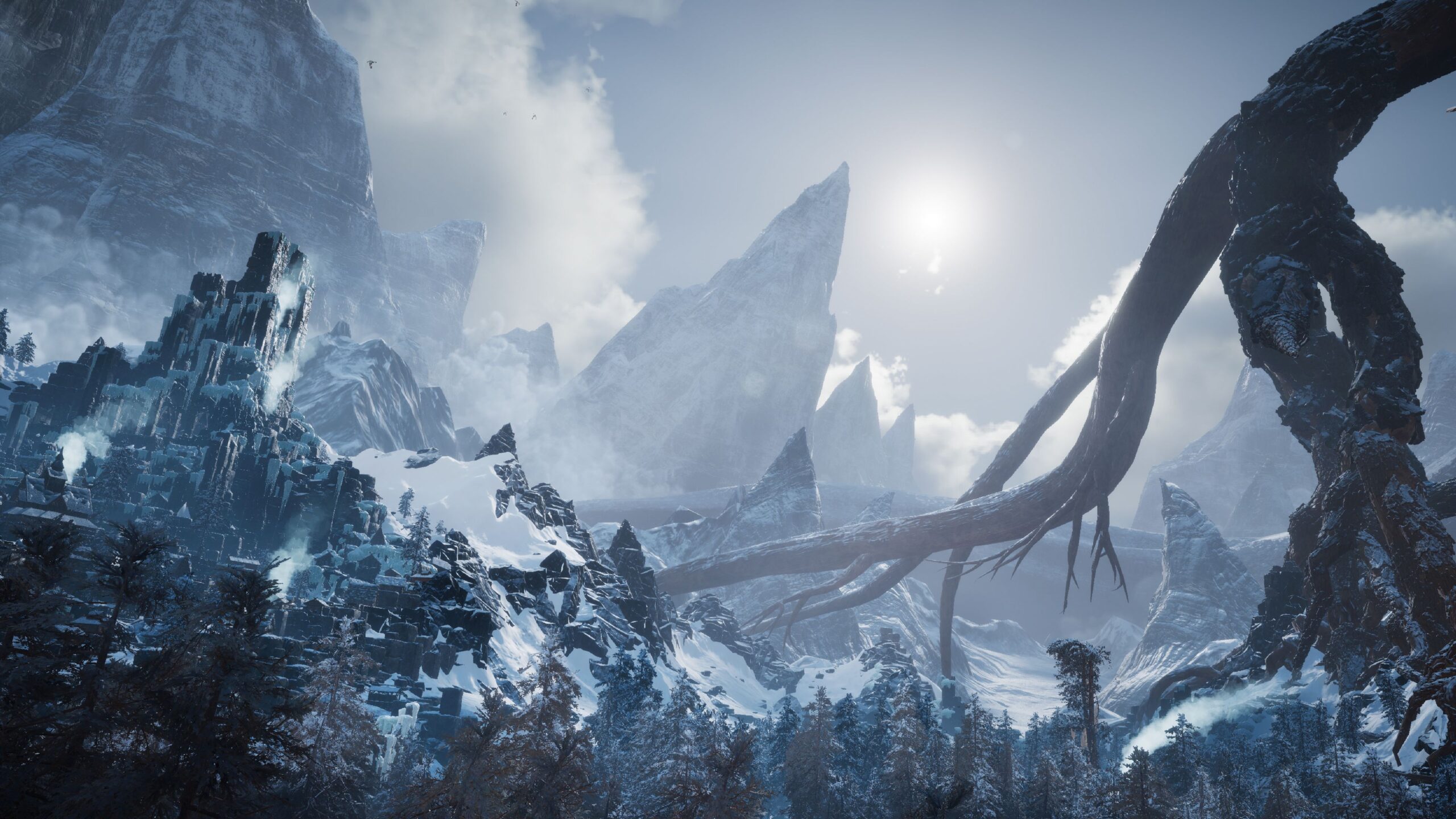 Missions
Missions
In general, in different aspects, there are small, more or less subtle changes in our opinion almost always for the better, such as the fact that now there are very few weapons and equipment. It is based more on improving what we have than storing many parts, discarding the previous menu system which took a long time on the menus. They have also changed the progress system, and now with a gigantic skill tree in which we spend the points, we obtain when levelling up in some nodes, increasing our character power and unlocking some improvements in the form of movements. The way of unlocking special abilities has also changed, now getting some books of knowledge hidden worldwide. Actually, although in appearance they have changed the progress system or the way to obtain the skills, in the end, the contents are the same as we saw in Odyssey, only ordered -or disordered- in another way to make it look new, something they do in many facets of the game.
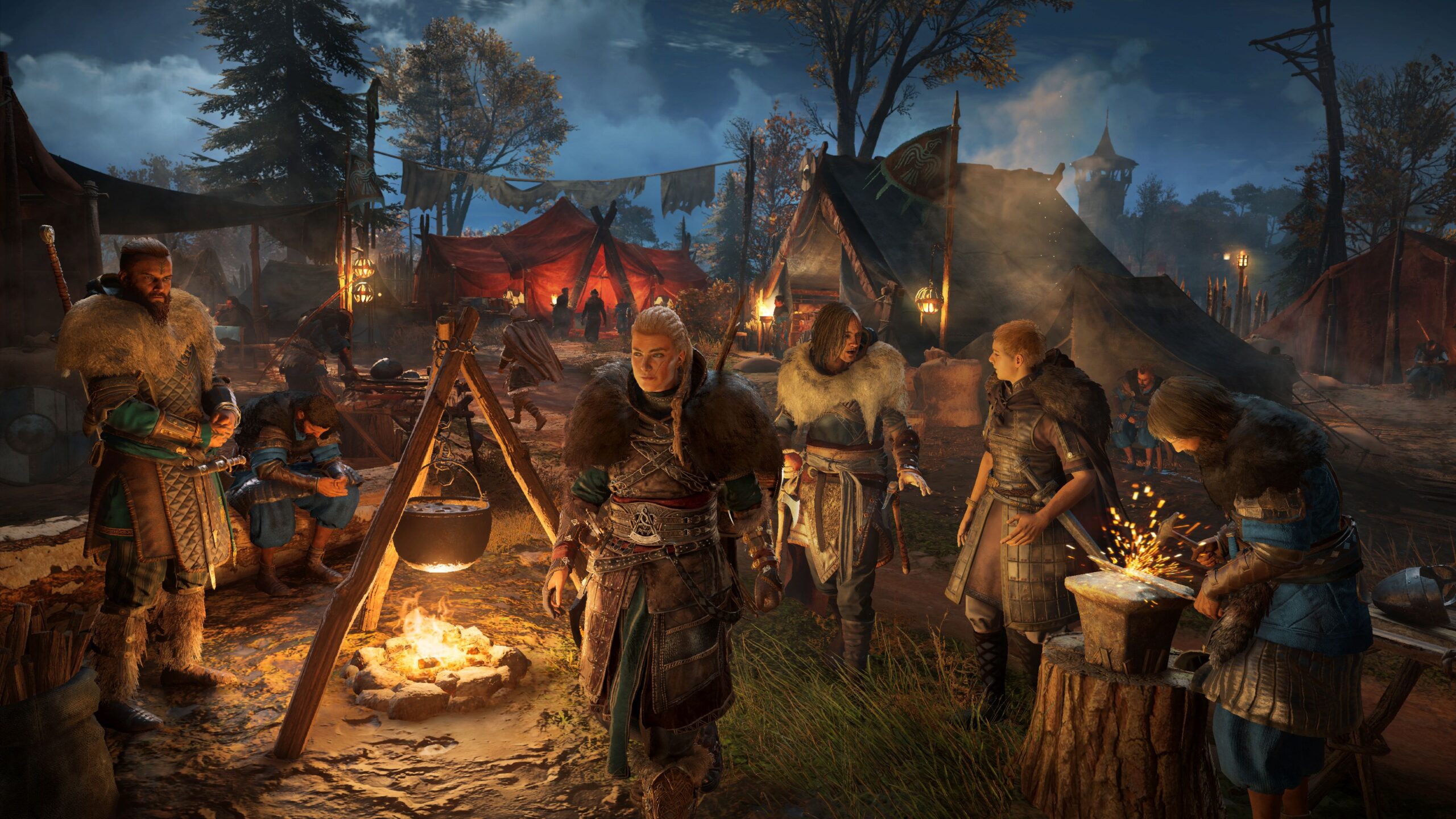 What we do like a lot is that they have eliminated the secondary missions as such, we no longer have an infernal shopping list with dozens of missions as in Odyssey, and thanks to this, you no longer feel like a vulgar messenger, nor does it overwhelm you so much amount of tasks that you have to do, the secondary content is embedded in the adventure more organically. That does not mean that there is no place for the most bizarre, disconcerting or fun moments, and there are events all over the world in which we meet a multitude of curious characters. Still, now they are resolved quickly and do not waste too much time giving unnecessary walks.
What we do like a lot is that they have eliminated the secondary missions as such, we no longer have an infernal shopping list with dozens of missions as in Odyssey, and thanks to this, you no longer feel like a vulgar messenger, nor does it overwhelm you so much amount of tasks that you have to do, the secondary content is embedded in the adventure more organically. That does not mean that there is no place for the most bizarre, disconcerting or fun moments, and there are events all over the world in which we meet a multitude of curious characters. Still, now they are resolved quickly and do not waste too much time giving unnecessary walks.
There are many things to do in the world of Valhalla, it is more varied than Odyssey in terms of its contents, but this does not mean that it does not become repetitive, since it is immense, with the main story that does not go below 50 or 60 hours. When you’ve been in for a handful of hours, and remembering all the time you spent on Odyssey, and you start to see the seams. At times, it is almost more entertaining to explore its world looking for treasures and solving puzzles than to focus on the main story, since here we find small puzzles or moments of exploration and investigation, enjoying its more adventurous side. Instead, the main missions stand out neither for their design nor their ingenuity. They are very routine and indistinguishable. In the way it is structured, in how it rewards the player’s curiosity, you can see its director’s hand, the same one from Assassin’s Creed IV: Black Flag, a game that has reminded us in the best of ways.
 A spectacular world, as expected from Assassins Creed Series
A spectacular world, as expected from Assassins Creed Series
Assassin’s Creed’s setting is always a stunning sight to see, we find the worlds that Ubisoft builds beautiful and fascinating. Although Valhalla’s setting may not seem as interesting or beautiful as Egypt or Greece, yet we simply loved it. It is also a quite cohesive and comfortable setting to move through it, as it is not fractured into a thousand islands, since in this installment, the navigation becomes anecdotal. Whether in cold Norway or the countryside of England, it is visually stunning, and on more than one occasion, it forces you to stop to admire its landscapes. Of course, as soon as it seems like a visual wonder to you as, after a few seconds, the weakly animated characters or their little detailed faces takes all the magic away, these ups and downs being very notable. In fact, technically, it seems very close to Odyssey, and we have not seen any substantial improvements.
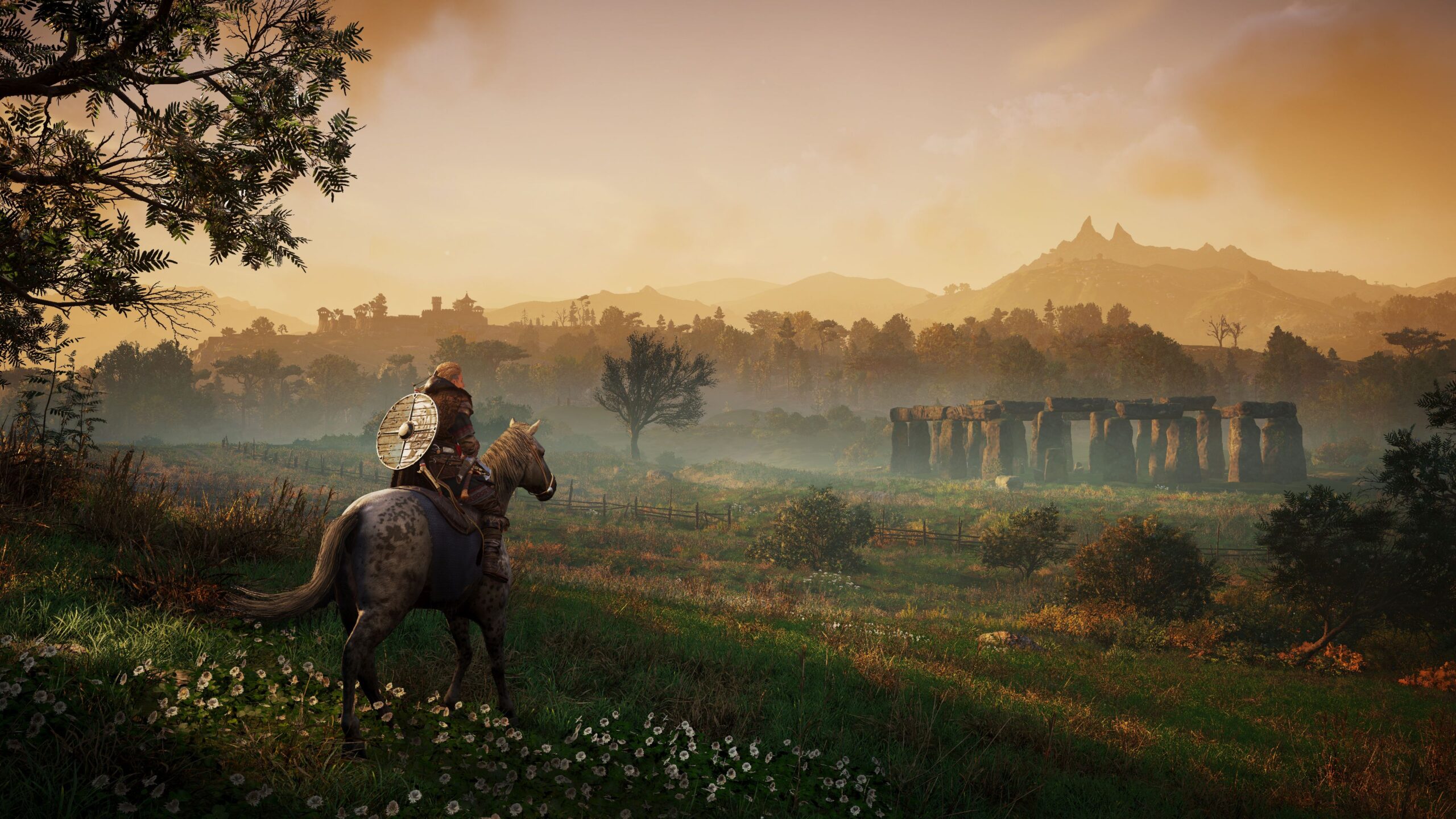 We have played the PS5 version, and we are very grateful for Ubisoft’s commitment to offering the new generation version at 60fps, something that we had never been able to enjoy in a game of the series on consoles – and almost no title open world in general – and that is greatly appreciated. The soundtrack, by an old acquaintance like Jesper Kyd ( Assassin’s Creed II ), Sarah Schachner ( Assassin’s Creed Origins ) and Einar Selvik ( Vikings ), is very, very good, the setting is fantastic.
We have played the PS5 version, and we are very grateful for Ubisoft’s commitment to offering the new generation version at 60fps, something that we had never been able to enjoy in a game of the series on consoles – and almost no title open world in general – and that is greatly appreciated. The soundtrack, by an old acquaintance like Jesper Kyd ( Assassin’s Creed II ), Sarah Schachner ( Assassin’s Creed Origins ) and Einar Selvik ( Vikings ), is very, very good, the setting is fantastic.
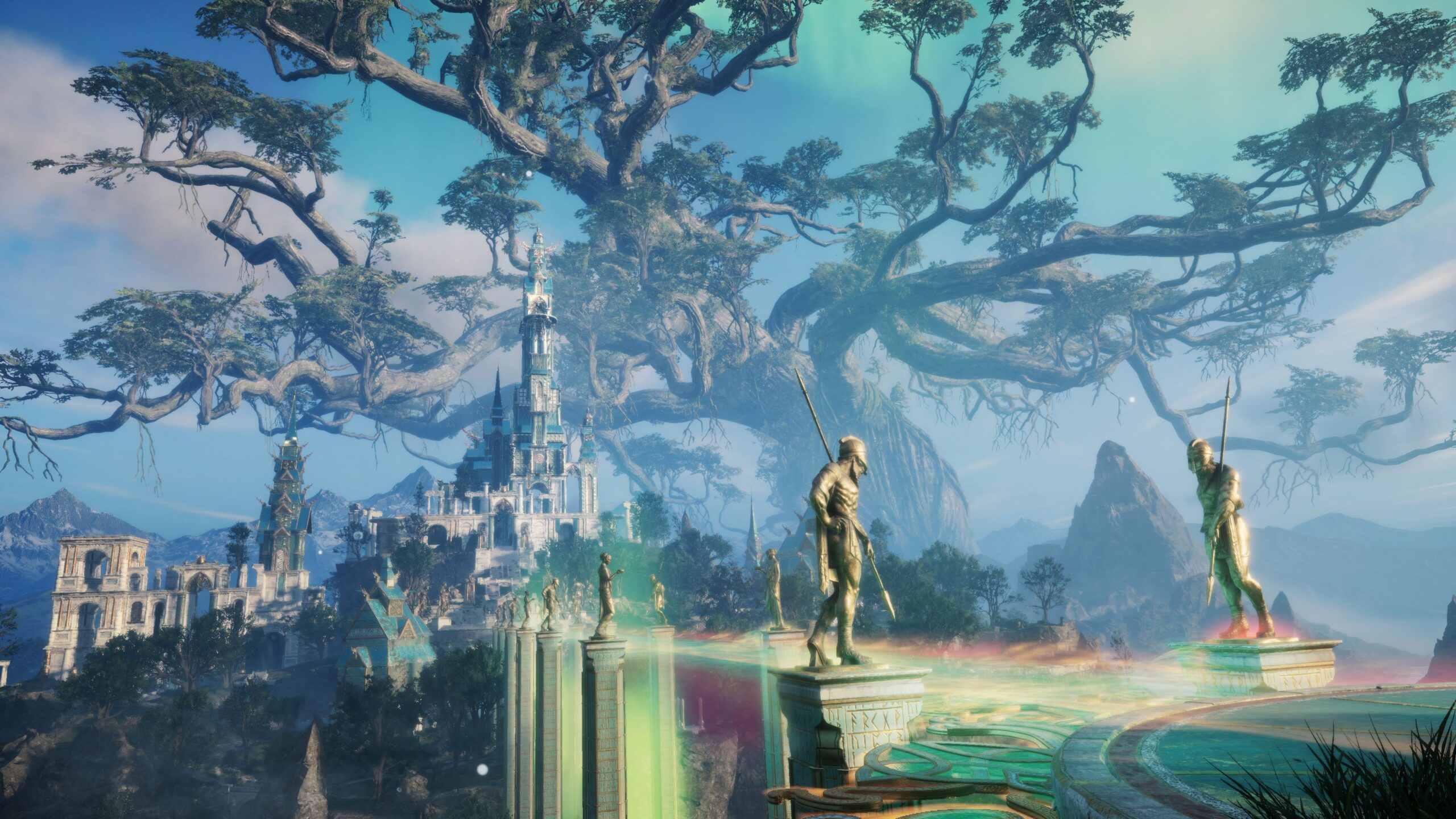 Final Thoughts
Final Thoughts
Assassin’s Creed Valhalla will not disappoint those who enjoyed the last two installments. It is an immense action RPG that takes place in a beautiful setting. Although it does not stand out in the playable or in the narrative, basking in the repetitiveness of its contents, the truth is that it is very entertaining, once again betting on a formula that has connected with millions of players, no matter the issues. In fact, in several respects, we liked it better than Odyssey. Still, it comes two years later, and the continuity, in this third part of the RPG trilogy, and makes similar mistakes. A game that you will like a lot will ensure the continuity of this formula, so we can only wait to see where they take us with the next adventure, which we assume will be gigantic again.
We prepared this review by playing the game on a PS5 system with Ubisoft’s review code.





poCwidPUf
nMgjlYVXiTqWDS
MBkoGNQqCve
EJSDktrnCawf